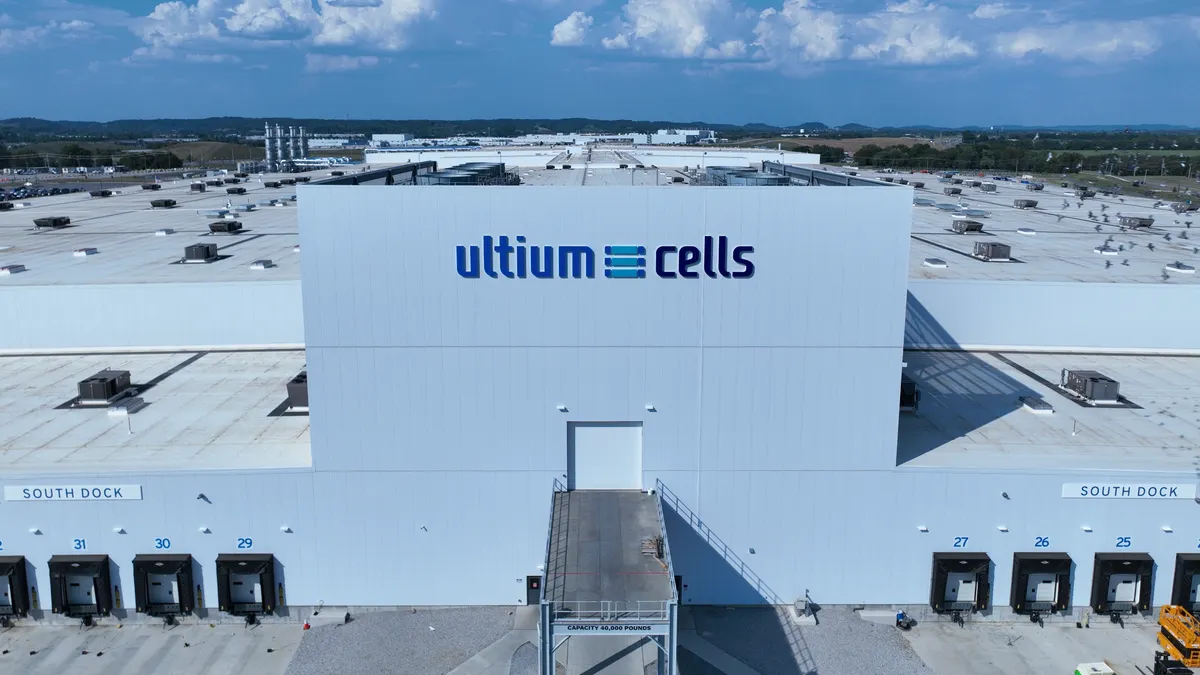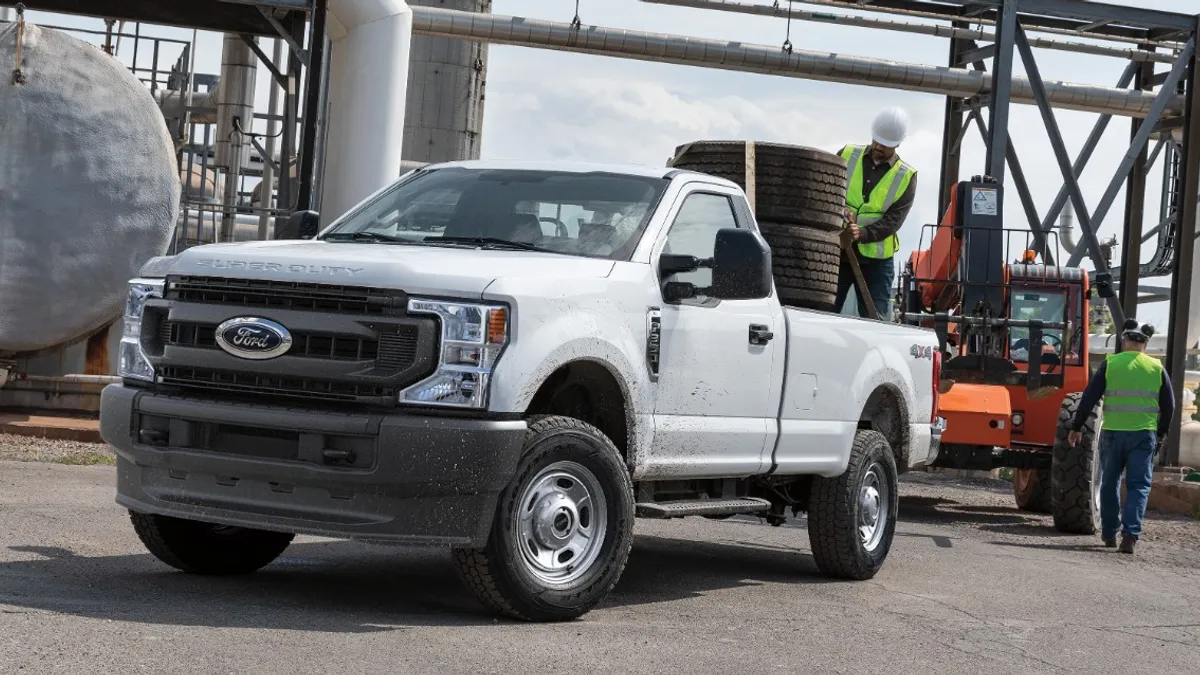Dive Brief:
- Ultium Cells, the electric vehicle battery joint venture between General Motors and LG Energy Solution, is upgrading its battery cell manufacturing facility in Spring Hill, Tennessee, to add production of lower-cost lithium iron phosphate (LFP) battery cells, the company announced in a July 14 press release.
- The plans are part of a $2.3 billion investment in the plant that was announced in 2021 to produce nickel cobalt manganese aluminum (NCMA) pouch cells and LFP cells at the same facility. The conversion of existing production lines will begin later this year, with commercial production of LFP cells expected to begin in late 2027.
- “The upgrade reflects the continued strength of our partnership with General Motors and our shared commitment to advancing EV battery innovation,” said Wonjoon Suh, executive VP and head of the Advanced Automotive Battery division at LG Energy Solution, in the release.
Dive Insight:
Introducing low-cost LFP battery chemistry into its growing lineup can help GM improve margins on its EVs, as well as reduce their costs for buyers. The higher costs of EVs using existing battery chemistries may deter shoppers and impact adoption in the U.S. now that the Federal EV tax credit of up to $7,500 is slated to end on Sept. 30. The elimination of the credit is included in the “One Big Beautiful Bill,” which was signed into law on July 4.
GM currently uses more expensive nickel manganese cobalt aluminum oxide (NMCA) batteries for its EVs.
The cost-effectiveness of LFP batteries compared to NCMA or nickel manganese cobalt (NMC) types is due to the use of less expensive raw materials, including cobalt and nickel. Instead, LFP batteries use a higher amount of cheap and abundant iron and phosphate. LFP batteries contain virtually no cobalt and perform better than other cell chemistries in high temperatures, making them more resistant to cell degradation and fire for greater safety.
“At GM, we’re innovating battery technology to deliver the best mix of range, performance, and affordability to our EV customers,” said Kurt Kelty, VP of batteries, propulsion, and sustainability at GM, in the release. “This upgrade at Spring Hill will enable us to scale production of lower-cost LFP cell technologies in the U.S., complementing our high-nickel and future lithium manganese rich solutions and further diversifying our growing EV portfolio."
LFP batteries also have a significantly longer cycle life and can endure more charge-discharge cycles before degrading, translating into a longer service life.
In addition, LPF batteries can be fully charged to 100% without accelerating cell degradation compared to NMC batteries. This is among the reasons why many OEMs recommend charging EVs to just 80% to extend battery service life. However, the tradeoff is that drivers do not receive the vehicle’s full EPA-estimated range.
One of the drawbacks of LFP batteries however, is their lower energy density compared to NMC and NCA chemistries, according to Quantumscape. An automaker must use more LFP cells to achieve EV range targets that buyers now expect. Although the use of additional cells and a larger battery pack may improve range, it also increases vehicle weight and can potentially reduce an EVs interior space.
In addition to Ultium Cells adding LFP cell production in Tennessee, GM and LG Energy announced in May the development of an improved lithium manganese-rich (LMR) prismatic battery cell design for the automaker’s future electric vehicles. The LMR battery chemistry uses a higher percentage of lower-cost manganese to replace cobalt, while still delivering high energy density, according to GM.
GM aims to be the first major automaker to use LMR batteries, and the Ultium Cells joint venture plans to start commercial production of the new cells by 2028 for GM’s full-size electric trucks and SUVs.
“Our expertise in these three battery chemistries will enable us to scale production of lower-cost LMR and LFP cell technologies so we can produce both full-size electric pickups and affordable EVs like the Chevrolet Bolt,” said GM president Mark Reuss in a blog post.
Ultium Cells broke ground on the Tennessee EV battery plant in 2021 and the first shipments of batteries to GM were in March 2024.














